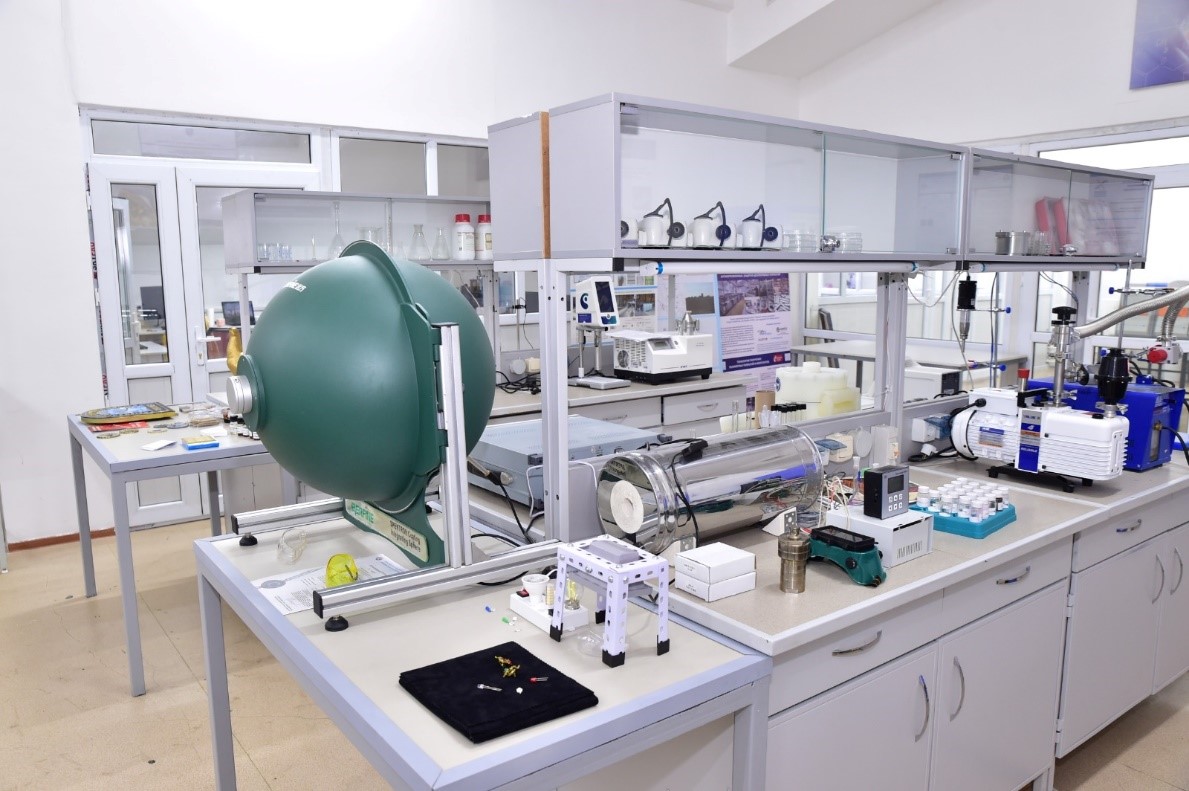- Main
- AL-FARABI NEWS LETTERS
- The Laboratory of Chemistry and Chemical Technology at KazNU has developed technologies for growing expensive artificial crystals
The Laboratory of Chemistry and Chemical Technology at KazNU has developed technologies for growing expensive artificial crystals

At the forum "Integration of Science, Business, and Production," organized by the Al-Farabi Kazakh National University in collaboration with the Almaty City Akimat, the Chemistry and Chemical Technology Laboratory was presented to representatives from science and business. The attendees were introduced to the products and research work of the "Farabi Chem Science" cluster and the scientific and production center "Chemical Coatings Innovations."
The goal of the "Farabi Chem Science" cluster, which includes 9 scientific laboratories, is to conduct research and develop new solutions in the fields of ecology, energy sources, medicinal chemistry, petrochemistry, and energy-intensive materials science. These scientific laboratories provide extensive opportunities for identifying and analyzing environmental pollutants, developing new materials for chemical power sources, conducting in-depth research in petrochemistry, and developing optimal methods for producing domestic medical and biological products and antibacterial protective coatings.
Additionally, the cluster works on creating fire-resistant coatings for metal and wooden structures, studying new types of inorganic materials with special properties, and offering services for quantitative and qualitative analysis of substances and materials. The laboratories are equipped with state-of-the-art equipment, with a total cost of the new equipment purchased through grant projects, program-targeted funding from the Ministry of Education and Science of the Republic of Kazakhstan (MES RK), and sponsor contributions, amounting to 1 billion tenge.
In these laboratories, technologies have been developed for growing expensive artificial crystals based on lithium triborate (LBO), which are in high demand in advanced industries such as optics and electronics. New materials for sodium-ion and magnesium-ion batteries have also been developed as a potential replacement for traditional lithium-ion batteries. In collaboration with the German company "Lanxess," the Russian company "Sibur," and the Polish company "Synthos," new catalysts have been created for the hydrogenation of butadiene-nitrile rubber.
A comprehensive set of electrochemical technologies has been developed for creating coatings for various purposes—anticorrosive, decorative, wear-resistant, heat-resistant, and others—that are produced in the university's newly opened galvanizing shop according to international standards. Furthermore, technologies for producing polymer composites, which surpass natural stone in strength and have found widespread application in construction and industry, have been successfully developed and brought to industrial realization. In the field of medicine, the university's professors take pride in the creation of a number of pharmaceutical products, both synthetic and derived from Kazakhstan's plant materials, including innovative masks and dressings based on polymer hydrogels for effective wound and burn treatment.


Department of Science and Innovation Activities
Other news



